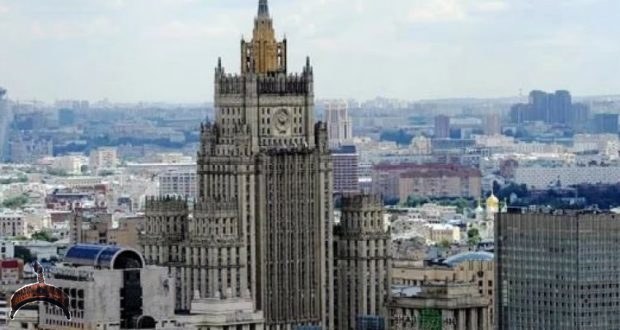Part one: Putin disappoints
Quick summary: Putin re-appointed Medvedev, appointed Alexei Kudrin as Chairman of the Accounts Chamber of Russia and Vitalii Mutko as Deputy Prime Minister in charge of construction, he then hosted Bibi Netanyahu in the Kremlin while the latter bombed Syria right before, during and after Netanyahu’s visit. Finally, there is the disgraceful zig-zag about the S-300 for Syria: first, yes we will do it, then, no we won’t. All these events can, and should, be carefully analyzed and explained, but I don’t think that it makes sense to deny that most people feel a sense of disappointment over it all (except, of course, the bright geniuses who will claim that they knew all along that Putin was “fake”, but this is precisely the “Hollywood-thinking” types on whom any real analysis would be lost in the first place).
I would argue that even those who think that this is no big deal and that nothing terrible happened will not, if they are honest, deny that Putin must have known, without any doubt, that his decisions would be unpopular with the Russian public and that, very uncharacteristically for him, he deliberately chose to ignore his only public opinion and favor other considerations. That is something very new and, I think, something important.
There are roughly two camps vying for power inside the Kremlin: I call them the Atlantic Integrationists and the Eurasian Sovereignists. The former group is a pure product of the 1990s. We can think of them as “liberals”, IMF/Washington Consensus/WTO/WB types; folks who came to power thanks to the regime of oligarchs which ran Russia from about 1990 to 2000 and which was both deeply pro-American and which had extremely close ties to Israel and the various political Jewish and Zionist organizations in the West. The latter group is primarily a product of the armed forces and the security services. The “bridge” between the two is, by the way, the Russian military industrial complex in which both groups are represented. Unsurprisingly, most Russian “elites” (defined simply as people who made their fortune or, at least, a good living in the 1990s and after) support the Atlantic Integrationists, while most “regular” Russian people overwhelmingly support the Eurasian Sovereignists. This is why Putin is so popular and Medvedev never was. What is interesting is to look into how these groups relate to Israel and Zionism.
In a past article, I have already looked at the complex and multi-layered relationship between Israel and Russia. At this point we need to look a little deeper and see how each of these groups relates to Israel and Zionism.
Atlantic Integrationists: unsurprisingly, they are pro-Israeli to the hilt. For them, Israel is a totally normal country, even to be admired, as they all have personal/family and business ties to Israelis in Israel and in the USA. While there is no official version of AIPAC in Russia, let’s just say that the ADL would give the Atlantic Integrationists a perfect score for loyalty and service.
Eurasian Sovereignists: here, things are much more complicated. Some Eurasian Sovereignists are profoundly anti-Zionist ideologically, while others don’t really care. But even for those who have no love for Israel, or who are deeply opposed to the Zionist influence in Russia in the 1990s or even today (especially in the Russian media), do not necessarily find it useful to say much about it. Why? Primarily because they think, and I would say correctly so, that being pro-Russian (in the sense of patriotic and wanting a truly sovereign Russia) does not have to entail being anti-Zionist, anti-Israeli or anti-Jewish. Furthermore, there are, and have always been, patriotic Russian Jews who have been an integral part of the Russian culture and history. Just like I often write that for Russians, Muslims are not “aliens” in the way many westerners perceive them, and Jews are not “aliens” for Russians either. This is why you can often meet the following Russian type: they will bitch and complain about all the Jewish “crooks and politicians”, but have “good” Jews as their closest and best friends. This is not blindness at all, this is the expression of the fact that to loathe an ideology is one thing, but to collectively feel hostility towards a group of people you know very well is a completely different proposition. I will never cease to repeat it: Russia is, has always been, and still remains a multi-ethnic and multi-religious society in which the presence of “others” simply is a fact of life.
Then there is the WWII factor, which the Israelis and Russians Zionists have been extremely skilled at exploiting to the max: Russians and Jew are united in a common memory of the horrors the Nazis inflicted upon them and they also often sense that West Europeans and US Americans are, well, maybe not quite as sincerely sympathetic to their plight even if political correctness forces them to pretend to be. As a result, you will find that most anti-Zionist Russians, while surely not “ADL compatible” in their views, hate the Nazis and everything western racism stands for no less than Jews would. If fact, when faced with the modern wave of rabid russophobia, many Russians say “we are the new Jews”, meaning that everything evil on the planet is blamed on them regardless of fact or logic. Like it or not, but that common memory does bind Russians and Jews in a profound way.
I can already imagine the rage and disgust my words above will trigger in western Jew-haters for whom the world is split into two groups: Jew-haters (good) and all those who “sold out” to “the Jews” (as if there was such monad as “the Jews”). All I can tell them is this: don’t project your reductionist world view on others, especially not on Russia. If you do, you will never “get” Russia and you will be stuck with the kind of proverbial nonsense like “a riddle, wrapped in a mystery, inside an enigma”.
Part two: The Empire Strikes back
The past couple of years have been terrible for the Zionists, both in the USA and in the rest of the world. First, there was the crushing defeat of their candidate in the USA and the election of a candidate they rabidly hated. Then there was the Russian military intervention in Syria which prevented them from overthrowing the last secular “resistance” regime in the Arab world. In Russia, “their” Atlantic Integrationists were slowly but surely losing power and all in all, the western sanctions turned out to be a blessing for Russia. Putin’s popularity was soaring to new heights and the the global “Zionist house” was on fire. In the USA, the Zionists counter-attacked with lightening speed and with a devastating effectiveness, breaking Trump in about 30 days (as shown by Trump’s betrayal of Flynn and later Bannon). After that, Trump made appeasing AIPAC his full-time job.
But that left another problem: while the US was re-taken under control, Russia, in the meantime, had succeeded in developing the capabilities to completely negate the entire US ABM system, to make much of the surface fleet obsolete and severely to impair the ability of US airpower to operate in airspace contested by modern Russian air defenses. In other words, in purely military terms, this was “game, set, match for Russia”.
[Sidebar: to those shocked by this statement and who would dismiss this as “Russian propaganda” I will submit the following: US military power is predicated on the following:
- The ability to deploy a carrier strike group anywhere on the planet.
- The ability to protect that carrier strike group from any major counter-attack.
- The ability to strike any country in the world with enough missile and airstrikes to break its will to continue to fight.
- The complete and total control of the skies (air supremacy). US forces simply never train for a combat scenario where they don’t control the skies or, even less so, when their enemy does.
- The very strong belief that no enemy would dare attack major overseas US bases.
- The very strong, quasi religious, belief that US military technology is superior.
- The absolute certitude that the US mainland would never be hit in a counter-attack.
None of the previous beliefs are based in reality anymore and, in fact, their opposite is true. This is why when dealing with a near-peer or peer enemy the US armed forces are more or less useless. The only very notable exception is the US nuclear triad and the US submarine fleet. The current situation in Syria (and by implication, Iran and Russia) is finally gradually bringing this new reality to the awareness of US decision-makers and military commanders.]
This is why Russia, albeit with only a tiny contingent, succeeded in turning the tide of the war in Syria and even now presents the AngloZionists with a frustrating challenge: a (comparatively) tiny contingent of Russian forces completely derailed the Empire’s plans for the entire Middle-East: not only is there a real change of peace breaking out in Syria, but the situation is far from having the Takfiris and Shia killing each other in Syria and Lebanon (a key part of the Israeli plan for the region). Hezbollah, Iran and the Syrians are now in a victorious coalition on the ground with the “Axis of Kindness” forces roundly defeated.
So the Israelis decided on a simple, very effective and very dangerous counter offensive plan: 1) start a war between the USA and Iran by creating an acute crisis as a result of the US reneging on its legal obligations and 2) bait Iran into a counter-attack in response to Israel air operations against Iranian and pro-Iranian forces in Syria. But for that plan to succeed, Russia needed to stay out.
So far, at least, it looks like the Israelis have convinced the Russians to stay out. But is that perception really well founded?
Continue reading after the page break
 Ọmọ Oòduà Naija Gist | News From Nigeria | Entertainment gist Nigeria|Networking|News.. Visit for Nigeria breaking news , Nigerian Movies , Naija music , Jobs In Nigeria , Naija News , Nollywood, Gist and more
Ọmọ Oòduà Naija Gist | News From Nigeria | Entertainment gist Nigeria|Networking|News.. Visit for Nigeria breaking news , Nigerian Movies , Naija music , Jobs In Nigeria , Naija News , Nollywood, Gist and more









